Raeisi: Iran ready to help prevent any geopolitical change in Caucasus
Iranian President Ebrahim Raeisi says Tehran is ready to play an effective role in preventing new clashes and any geopolitical change in the disputed Caucasus region.
In a phone conversation with Armenian Prime Minister Nikol Pashinyan on Saturday, Raeisi said Iran, as a powerful neighbor of both Armenia and Azerbaijan, strongly opposes any new tension and change in the historical borders in the region.
He once again reiterated Iran's support for territorial integrity of all the countries in the region, expressing Tehran's preparedness to help solve regional issues through "diplomatic" dialogue.
Iran believes that regional problems should be settled through negotiations among the countries in the region, Raeisi said.
The president said Iran is resolutely opposed to the involvement of foreign actors in the developments pertaining to the Caucasus.
Armenia and Azerbaijan accused each other on Thursday of amassing troops close to their joint border as tensions continue to rise over the Nagorno-Karabakh region.
Located in the South Caucasus, the landlocked region of Nagorno-Karabakh has been at the center of a dispute between Azerbaijan and Armenia for more than three decades.
Since gaining independence from the former Soviet Union in 1991, the two neighboring countries have fought two wars, in 1994 and 2020, over the mountainous territory.
Karabakh, while acknowledged as a part of Azerbaijan by the international community, has a predominantly Armenian population that has persistently opposed Azerbaijani governance since a separatist war in 1994.
Tensions remain high and skirmishes along the shared border are a regular occurrence despite mediation efforts by the European Union, the United States and Russia.
Russia brokered a peace deal between the two sides in November 2020 bringing an end to a 44-day war in the region. It has since deployed about 2,000 troops to the region to serve as peacekeepers.
Elsewhere in his remarks, Raeisi lauded progressing economic cooperation with Armenia and the implementation of the agreements previously signed between the two sides.
He said Tehran is ready to improve economic and commercial exchanges with Yerevan.
Pashinyan, for his part, outlined the latest developments in the South Caucasus region and said Iran has always played an effective and constructive role in maintaining and improving peace, stability and security in the region.
Meanwhile, the Armenian prime minister's office also reported that during the telephone conversation, Pashinyan and Raeisi discussed issues related to the situation in the region.
They exchanged views about the deepening humanitarian crisis in Nagorno-Karabakh as a result of the illegal blockade of the Lachin Corridor, the accumulation of Azerbaijani troops around Nagorno-Karabakh and the tendencies of increasing tension on the Armenia-Azerbaijan state border, it added.
In its readout of the Saturday call, the office said the Armenian prime minister "once again emphasized the commitment to the agreements of Prague on October 6, 2022 and Brussels on May 14, 2023, as well as to the approach of solving all issues exclusively through diplomatic methods and in a constructive atmosphere."
It said Pashinyan voiced Yerevan's readiness to "hold urgent discussions" with Azerbaijan's President Ilham Aliyev in a bid to alleviate tensions.
Palestinian resistance fighters hit Israeli Merkava 4 tanks
VIDEO | UK police brutal assault on Muslim family sparks outrage, protests
Hamas: Death of leader in Israeli jail amounts to murder
EU sends €1.5 billion to Ukraine from frozen Russian assets
VIDEO | Millions of Yemenis rally for Gaza, call for more anti-Israel operations
UN chief calls for Olympic truce as games begin in Paris
Paris Olympics begin as sports world reeling from loss of 400 Palestinian athletes in Gaza war
Iran warns ‘sworn enemies’, says sidekicks of US, Israel ‘displaced’ with bloody hands


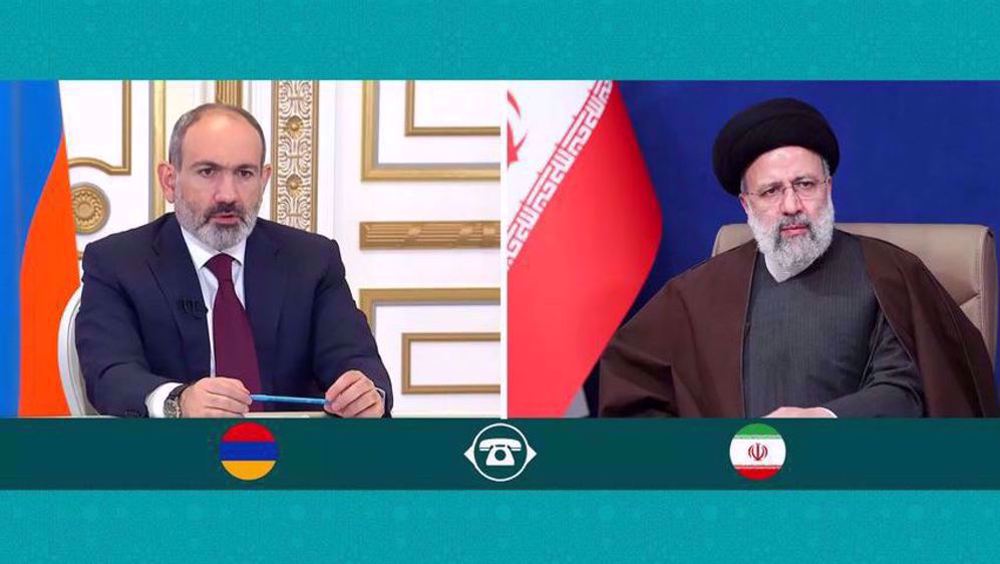
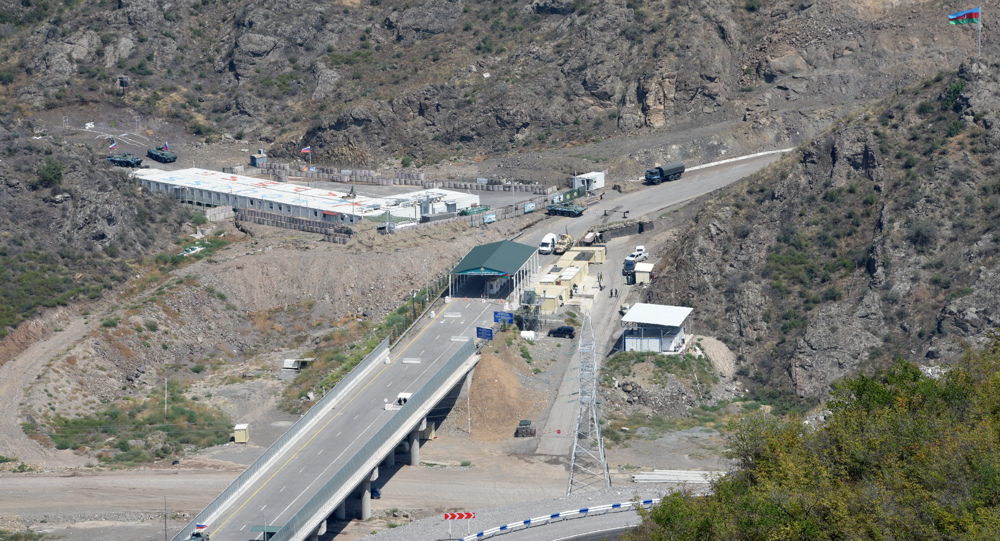
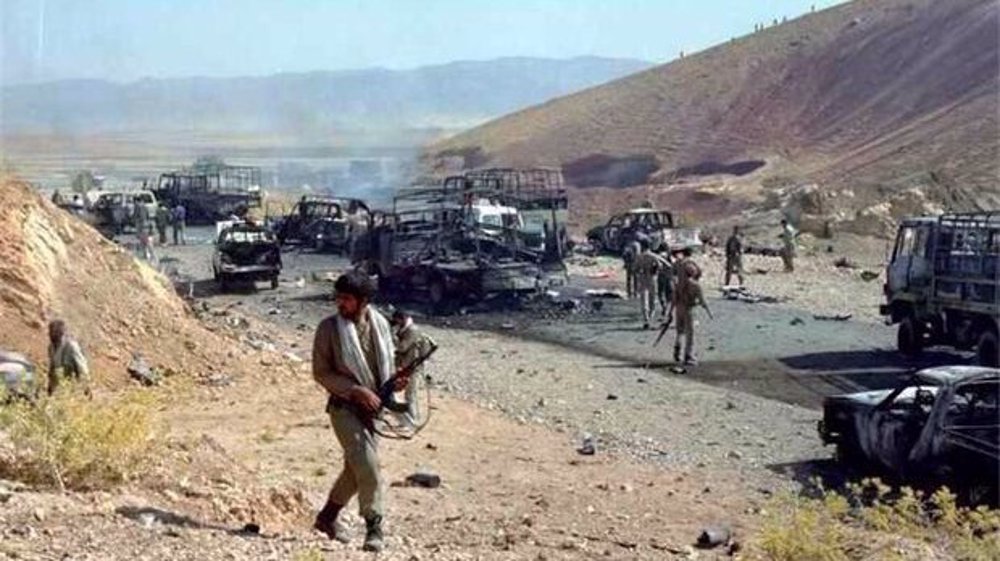
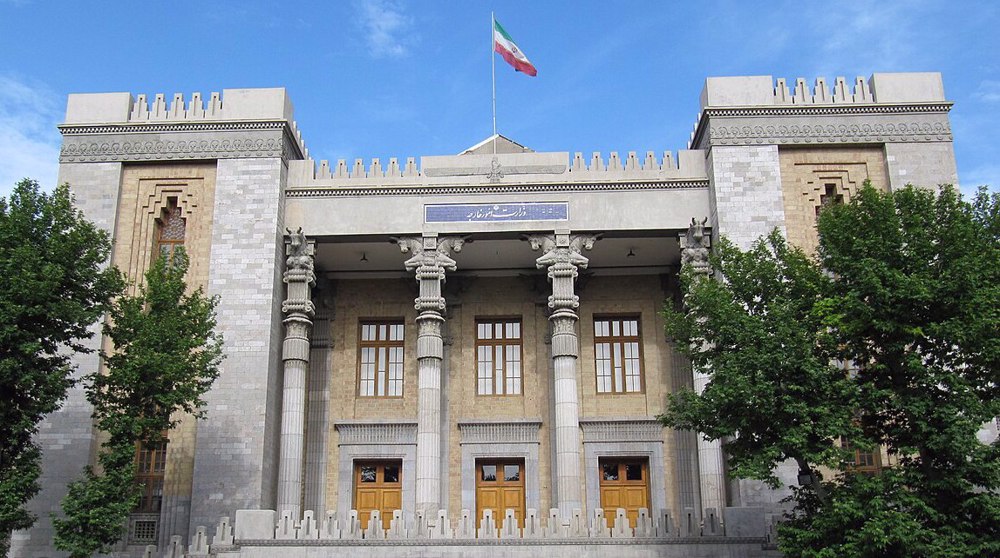
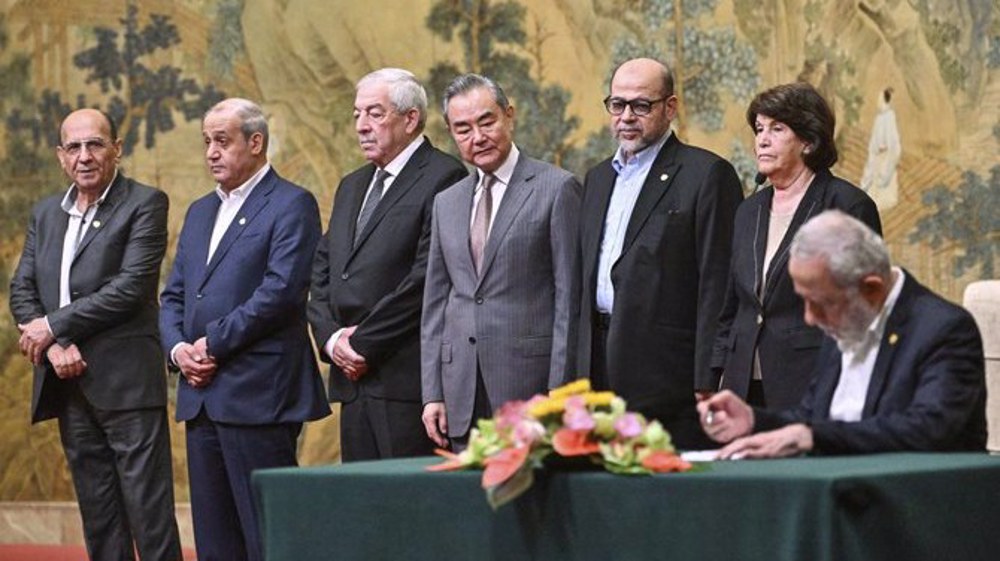




 This makes it easy to access the Press TV website
This makes it easy to access the Press TV website